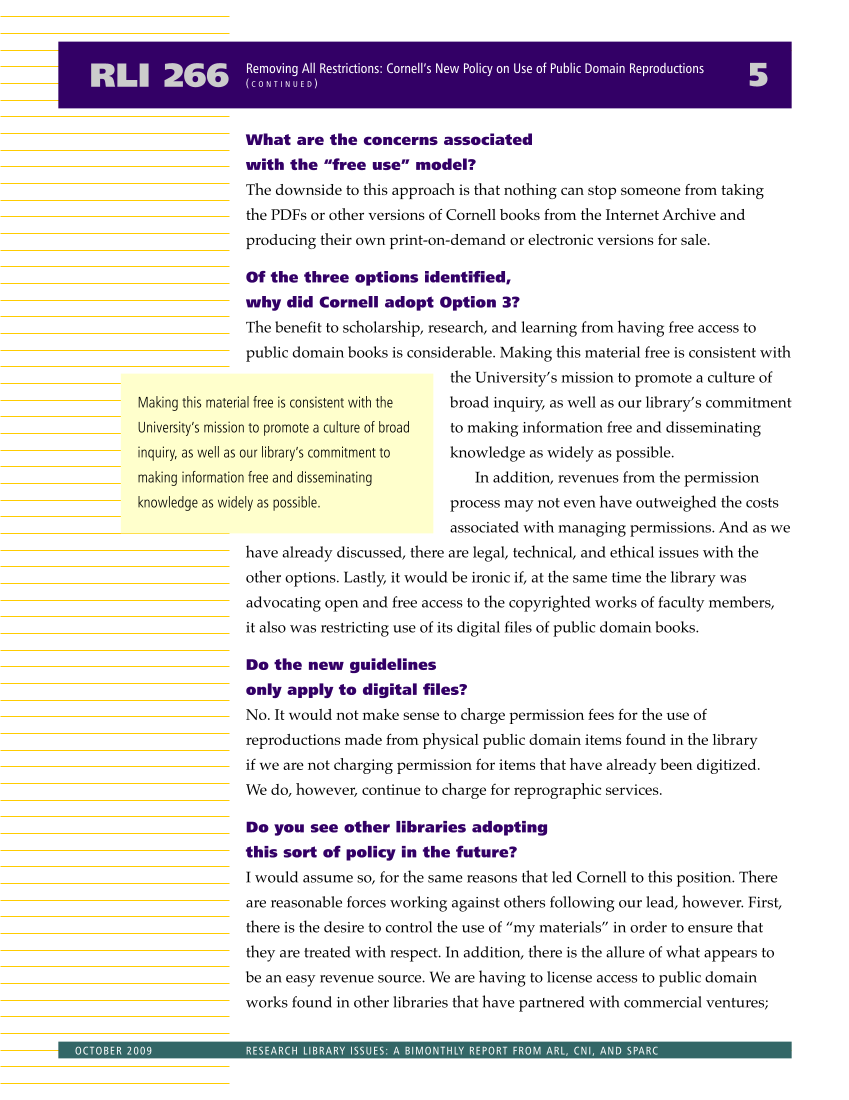What are the concerns associated with the “free use” model? The downside to this approach is that nothing can stop someone from taking the PDFs or other versions of Cornell books from the Internet Archive and producing their own print-on-demand or electronic versions for sale. Of the three options identified, why did Cornell adopt Option 3? The benefit to scholarship, research, and learning from having free access to public domain books is considerable. Making this material free is consistent with the University’s mission to promote a culture of broad inquiry, as well as our library’s commitment to making information free and disseminating knowledge as widely as possible. In addition, revenues from the permission process may not even have outweighed the costs associated with managing permissions. And as we have already discussed, there are legal, technical, and ethical issues with the other options. Lastly, it would be ironic if, at the same time the library was advocating open and free access to the copyrighted works of faculty members, it also was restricting use of its digital files of public domain books. Do the new guidelines only apply to digital files? No. It would not make sense to charge permission fees for the use of reproductions made from physical public domain items found in the library if we are not charging permission for items that have already been digitized. We do, however, continue to charge for reprographic services. Do you see other libraries adopting this sort of policy in the future? I would assume so, for the same reasons that led Cornell to this position. There are reasonable forces working against others following our lead, however. First, there is the desire to control the use of “my materials” in order to ensure that they are treated with respect. In addition, there is the allure of what appears to be an easy revenue source. We are having to license access to public domain works found in other libraries that have partnered with commercial ventures RLI 266 5 Removing All Restrictions: Cornell’s New Policy on Use of Public Domain Reproductions ( C O N T I N U E D ) OCTOBER 2009 RESEARCH LIBRARY ISSUES: A BIMONTHLY REPORT FROM ARL, CNI, AND SPARC Making this material free is consistent with the University’s mission to promote a culture of broad inquiry, as well as our library’s commitment to making information free and disseminating knowledge as widely as possible.



























